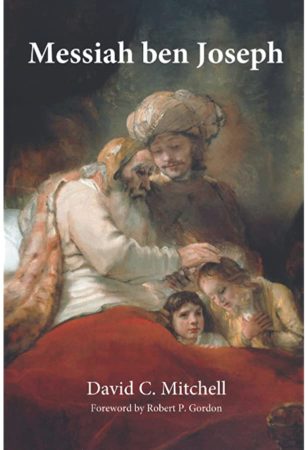One of the things that separates Jews and Christians is that the Christians have seen the various messianic streams of the Old Testament as all coming together as fulfilled in Christ. In the understanding of Christians, the suffering servant of Isaiah is descriptive of the Messiah in one phase of His ministry, while His apocalyptic judgments are fulfilled in another phase of the ministry of this same Christ. In contrast, the rabbinical tradition had room for multiple messiahs, which the Jews do not necessarily see as coming together in one person.

One of the treasures of the Talmud was one of these messianic traditions, kept alive by the rabbis over the course of centuries, and virtually unknown to Christians. But once made aware of this tradition, the natural Christian response is to see it fulfilled in Jesus Christ as well. Jews naturally want to keep it distinct, but a number of the indicators that point to Jesus of Nazareth is part of the reason why this rabbinical tradition was largely kept hidden from Christian scholars until the nineteenth century.
Christians understand that Messiah ben David is of course Jesus Christ. He is from the tribe of Judah, the tribe to which the scepter belonged. But this other messiah is Messiah ben Joseph. I am just going to state the rudiments of the connections here—for the rest I would urge you to consult the book. As I have told a number of people so far, there are portions of this book that are good enough to melt your face.
Prophecies that a descendant of Joseph would rule the world are found both in Jacob’s blessing, and in the blessing that Moses gave to Joseph. The blessings are astonishing in their breadth and depth, and appear to include worldwide dominion.
“Joseph is a fruitful bough, even a fruitful bough by a well; Whose branches run over the wall: The archers have sorely grieved him, and shot at him, and hated him: But his bow abode in strength, and the arms of his hands were made strong by the hands of the mighty God of Jacob; (From thence is the shepherd, the stone of Israel:) Even by the God of thy father, who shall help thee; And by the Almighty, who shall bless thee with blessings of heaven above, blessings of the deep that lieth under, blessings of the breasts, and of the womb: The blessings of thy father have prevailed above the blessings of my progenitors unto the utmost bound of the everlasting hills: They shall be on the head of Joseph, and on the crown of the head of him that was separate from his brethren.”
Genesis 49:22–26 (KJV)
Moses does something similar for Joseph.
“And of Joseph he said, Blessed of the Lord be his land, for the precious things of heaven, for the dew, and for the deep that coucheth beneath, and for the precious fruits brought forth by the sun, and for the precious things put forth by the moon, and for the chief things of the ancient mountains, and for the precious things of the lasting hills, and for the precious things of the earth and fulness thereof, and for the good will of him that dwelt in the bush: Let the blessing come upon the head of Joseph, and upon the top of the head of him that was separated from his brethren. His glory is like the firstling of his bullock, and his horns are like the horns of unicorns: With them he shall push the people together to the ends of the earth: And they are the ten thousands of Ephraim, and they are the thousands of Manasseh.”
Deuteronomy 33:13–17 (KJV)
Now Joseph is one of the stand out characters of the Old Testament, and is clearly a type of Christ in many respects. Rachel was barren, and conceived through the intervention of God (Gen. 30:2), and Mary was a virgin, and so conceived miraculously (Matt. 1:18). Joseph was beloved of his father (Gen. 37:3), as Jesus was by His (Matt. 3:17; 17:5). Joseph’s brothers rejected him (Gen. 37:8), as did the brothers of Jesus (John 7:5). Joseph was stripped and mocked (Gen. 37:19,23), and Jesus was stripped and mocked (Matt. 27:28). Joseph was sold for silver (Gen. 37:28), and so was Jesus (Matt. 26:15). Joseph was thirty years old when he began his public ministry in Egypt (Gen. 41:46), and Jesus was around thirty when He began His ministry (Luke 3:23). Joseph is the savior the world (Gen. 45:7), and Jesus is the Savior of the world (Acts 13:23). There is much more, but this should suffice.
On top of all that, the Old Testament form of the name of Jesus is Joshua. Joshua, the successor of Moses, and the conqueror of Canaan, was an Ephraimite—the son of Joseph. And notice also that Jesus in the New Testament is reckoned as the legal son of a man named Joseph (Luke 3:23). Physically, Jesus was clearly descended from Judah (along with both Joseph and Mary). But typologically He was the heir of the great promises delivered to Ephraim.
What I have mentioned here is just a fraction of the evidence. This is a work of dense scholarship, so you might want to take it slow. But it is rich. And an essential part of the richness is seen in how it displays the meticulous and detailed knowledge of the text of Scripture displayed by the rabbis. It is simply astonishing—astonishing both that they saw so much in the text, and that they missed so much in the fulfillment.

